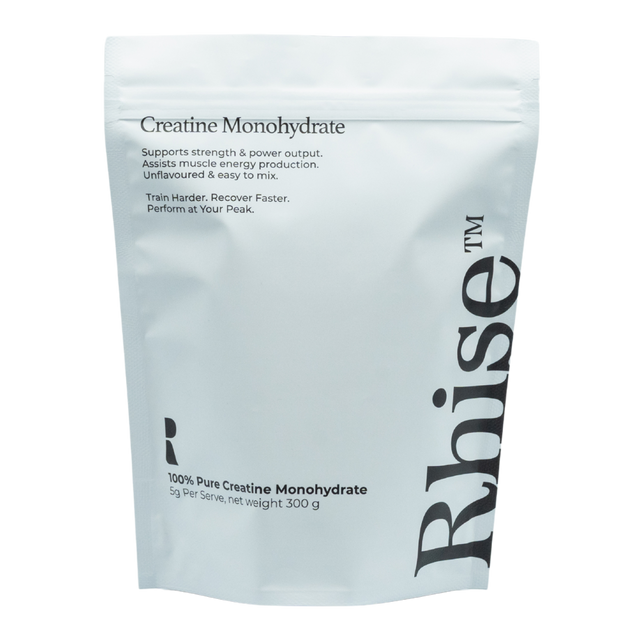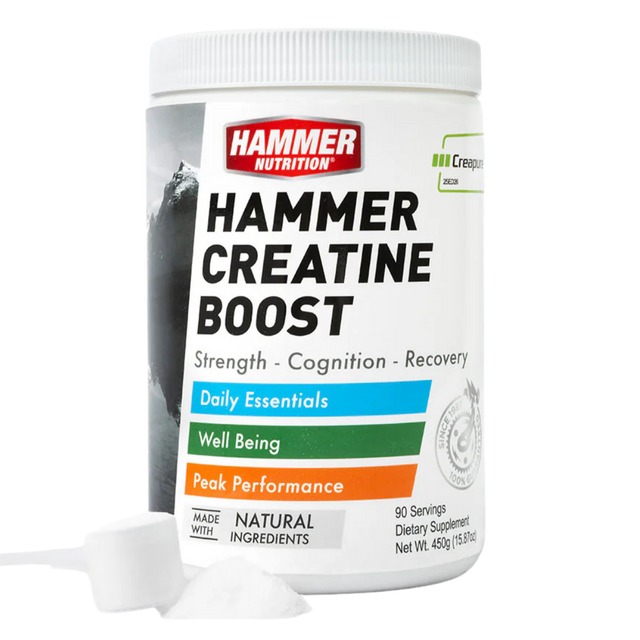The Ultimate Guide to Creatine: Benefits, Dosage, Safety & Who Should Take It
Want to boost your strength, power, and recovery and even support your brain? Discover why creatine, the most researched sports supplement in history, is a game-changer for athletes and active people alike. From sprinting to resistance training, learn how just 3-5g per day can transform your performance and help you train harder, recover faster, and stay sharp.
Table of Contents
-
What is Creatine and How Does it Work?
-
How Can Creatine Improve Athletic Performance?
-
Who Benefits Most from Creatine Supplementation?
-
What is Creapure® Creatine and Why is it Recommended?
-
Is Creatine Safe?
-
What’s the Recommended Creatine Dose?
What is Creatine and How Does it Work?
-
Creatine is a compound primarily stored in skeletal muscle and the brain. The body produces about 1g per day in the liver, kidneys, and pancreas, while approximately 2g is lost daily in urine (1). Creatine comes mostly from meat and fish.
-
A typical omnivorous diet supplies 1-2 g per day (2). Vegetarians and vegans generally have lower baseline muscle creatine stores.
-
Although the body naturally makes creatine, supplementation can increase muscle stores, supporting high-intensity performance, recovery, and lean muscle growth (3,4,5).
How Can Creatine Improve Athletic Performance?
-
Creatine helps regenerate ATP (the body’s energy currency), which enhances muscle strength, power output, and explosive movements (5).
-
Creatine is most effective for short bursts of high-intensity effort (<30 seconds), including sprinting, jumping, and team sports requiring repeated maximal efforts (6).
-
By buffering hydrogen ions in muscles, creatine reduces fatigue and improves recovery, allowing athletes to maintain intensity across multiple efforts (6).
Who Benefits Most from Creatine Supplementation?
-
Team sport athletes
-
Sprinting and cycling athletes
-
Strength and resistance training athletes
-
Endurance athletes doing high intensity training
-
Those with lower baseline creatine stores (e.g. vegetarians) often experience larger performance and muscle mass gains (1,2).
-
Women of all ages, especially during menopause to assist muscle, strength, recovery, and cognitive support (7).
-
Athletes or active individuals recovering from injury or reduced training to help maintain muscle strength, mass and support bone health during recovery (8).
What is Creapure® Creatine and Why is it Recommended?
Creapure® Creatine Monohydrate is one of the purest, most researched forms of creatine, sourced from Germany and batch-tested for quality and safety, making it suitable for competitive athletes (9).
Aid Station Products that Contain Creapure® Creatine Monohydrate
-
ATP Science Pre+ [3g]
Aid Station Products that have 100% Creatine Monohydrate
Is Creatine Safe?
-
Creatine monohydrate is one of the most extensively researched supplements in sports science and has been shown to be safe for ongoing use at recommended levels.
-
❌- Creatine is not recommended for people with kidney disease, or for women who are pregnant or breastfeeding, unless under medical supervision.
What’s the Recommended Creatine Dose?
-
Take 3-5g/day of creatine monohydrate, at any time of the day.
-
A loading phase of around 20g/day (split into 4 doses) for 5-7 days can speed up muscle saturation, but is not essential.
-
Higher doses of creatine (10g/day) may support cognitive function, especially during stress or sleep deprivation (10).
Summary
Creatine is the most researched sports supplement in history. Safe, effective, and affordable, it boosts strength, power, recovery, and even brain function. For most athletes and active people, 3-5g daily is all you need.
Ash Miller
Dietitian and Nutritionist (Masters)
Bachelor of Physical and Health Education
Instagram: @ashthomo_nutrition <link instagram page>
Disclaimer:
The content in this blog is for general information only and is not a substitute for professional medical advice, diagnosis, or treatment. Always speak with your doctor or allied health team before changing your diet, exercise, or taking supplements, especially if you have a health condition or take medication. Please use this information as a guide only. Aid Station doesn't take responsibility for individual outcomes.
References
-
Cooper R, Naclerio F, Allgrove J, Jimenez A. Creatine supplementation with specific view to exercise/sports performance: an update. J Int Soc Sports Nutr. 2012;9:33.
-
Jayasena DD, Jung S, Bae YS, et al. Changes in endogenous bioactive compounds of Korean native chicken meat at different ages and during cooking. Poult Sci. 2014;93:1842-1849.
-
Momaya A, Fewal M, Estes R. Performance-enhancing substances in sports: a review of the literature. Sports Med. 2015;45:517-531.
-
Roschel H, Gualano B, Ostojic SM, Rawson ES. Creatine supplementation and brain health: A narrative review of the current evidence. J Clin Psychopharmacol. 2021;41(3):249–255.
-
Bemben MG, Lamont HS. Creatine supplementation and exercise performance. Sports Med. 2005;35:107–125.
-
Butts J, Jacobs B, Silvis M. Creatine Use in Sports. Sports Health. 2018;10(1):31–34.
-
Devries M, Phillips S. Creatine supplementation during resistance training in older adults—a meta-analysis. Med Sci Sports Exerc. 2014;46:1194–1203.
-
International Society of Sports Nutrition position stand: safety and efficacy of creatine supplementation. Journal of the International Society of Sports Nutrition. 2017.
-
Sports Dietitians Australia [SDA]. Creatine for Athletes. Available from: https://www.sportsdietitians.com.au/factsheets/supplements/creatine-athletes/
-
Sandkühler JF, Kersting X, Faust A, et al. The effects of creatine supplementation on cognitive performance-a randomised controlled study. BMC Med. 2023;21(1):440. doi:10.1186/s12916-023-03146-5


















